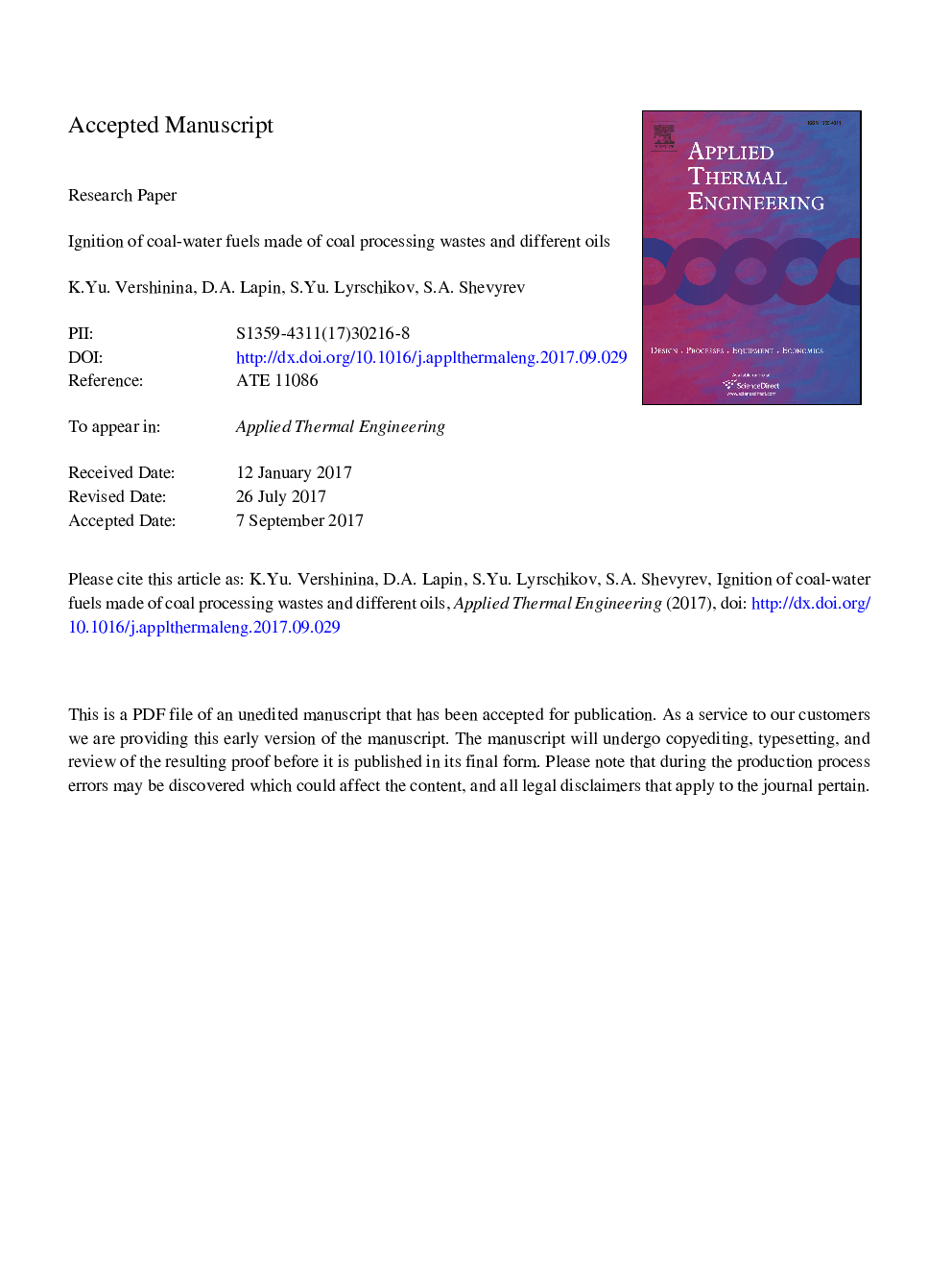| Article ID | Journal | Published Year | Pages | File Type |
|---|---|---|---|---|
| 7046585 | Applied Thermal Engineering | 2018 | 20 Pages |
Abstract
The paper presents results of a comparison of integral characteristics for ignition and combustion of droplets of organic coal-water fuels (OCWF) made using processing wastes (filter cakes) of coals of different grade and typical liquid combustibles: waste engine, turbine oil, and fuel oil. In experiments, sizes (radii) of fuel droplets are from 0.4 mm to 1.5 mm; a temperature of oxidizer varies from 600 K to 1200 K; oxidizer flow rate is in a range from 0.5 m/s to 5 m/s. We consider the two hydrodynamic regimes of a relative motion of the droplets and oxidizer flow: a steady-state regime with droplet position on a junction of a low-inertia thermocouple and a regime of droplet soaring in oxidizer flow. Minimal ignition temperatures (significantly less than 1000 K) of filter-cake-based OCWF are reported. Study presents dependences of the integral characteristics of OCWF ignition on properties of liquid fuel components, such as, primarily, the flash point and ignition temperature. Based on experimental results, recommendations for choosing an optimal regime of combustion and a method of slag removal depending on used components of OCWF are given. Experimental data and formulated conclusions can be considered as a significant contribution to a development of OCWF technologies, which can help to solve global problems of humanity, i.e. reduction of an atmospheric pollution, global warming and dimming.
Keywords
Related Topics
Physical Sciences and Engineering
Chemical Engineering
Fluid Flow and Transfer Processes
Authors
K.Yu. Vershinina, D.A. Lapin, S.Yu. Lyrschikov, S.A. Shevyrev,
